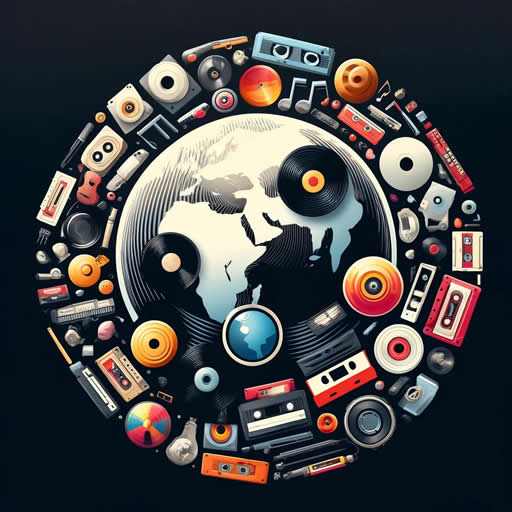Concert Tickets as Collectibles: What Makes Them Valuable?
Collecting concert memorabilia has become increasingly popular, with vintage concert tickets emerging as a sought-after category. While at first glance, a simple ticket might seem like an odd choice for a collectible, many factors contribute to their value. From iconic performances and rare appearances to sold-out shows and nostalgia, certain concert tickets hold immense worth. But what exactly makes a vintage concert ticket valuable?
1. Historical Significance
One of the primary drivers behind the value of a concert ticket is the historical significance of the event it represents. Tickets from concerts that have left an indelible mark on music history—such as The Beatles’ first U.S. concert, Woodstock, or Queen’s legendary 1985 Live Aid performance—can be worth a small fortune. Collectors seek these tickets because they serve as tangible connections to key moments in music history, offering a sense of being part of a monumental event.
Key factors:
- Cultural Impact: Was the concert part of a historic moment in music or social change?
- Artist’s Legacy: Did the artist or band perform a legendary set that is still talked about today?
For example, Woodstock tickets are incredibly valuable because of the festival’s cultural significance in the late 1960s counterculture movement. These tickets represent more than just access to a concert—they symbolize a turning point in cultural history.
2. Rarity of the Ticket
As with many collectibles, rarity plays a huge role in determining the value of a concert ticket. A ticket from a concert where only a limited number were printed, or from an artist who rarely performed live, can fetch a higher price on the collectors’ market. This scarcity creates a sense of exclusivity and makes such tickets more desirable.
Examples of rare tickets:
- Cancelled Shows: Tickets from concerts that were canceled, especially if the artist never rescheduled, are often very rare.
- Small Venues: Tickets from intimate shows or small venues where only a few hundred people attended hold unique value due to their limited availability.
Collectors tend to gravitate towards tickets from these one-off events, knowing they have something few others do.
3. Condition of the Ticket
Condition is paramount when determining the value of a concert ticket. A ticket in pristine condition, with no creases, tears, or fading, is far more desirable than one that is damaged. While some collectors appreciate the character added by a ticket that’s been folded or crumpled in the rush to see an iconic artist, most prefer clean, well-preserved pieces.
Concert tickets with:
- Original Perforations: Tickets that are unused or intact with their stubs can fetch higher prices.
- No Fading: Color and print quality that remains vibrant adds to the desirability of a ticket.
- Minimal Wear and Tear: Collectors will pay more for tickets without water damage, stains, or significant bending.
If a collector can find a rare ticket in mint condition, they often have a prized possession on their hands.
4. Artist’s Popularity and Legacy
Tickets from concerts by iconic or legendary musicians are highly collectible. Artists like Jimi Hendrix, Elvis Presley, and Led Zeppelin have a huge following, and their memorabilia is always in demand. The same applies to more contemporary icons like Prince, Nirvana, or even festivals featuring performances by multiple renowned artists.
The legacy of the artist plays a huge role in the ticket’s value:
- Deceased Artists: Tickets from concerts performed by artists who are no longer alive, like Kurt Cobain or David Bowie, often become rare and highly valuable.
- Final Tours or Farewell Shows: A ticket from an artist’s final performance or tour can be especially prized by collectors, as it represents the end of an era.
For instance, a ticket from Elvis Presley’s final concert in Indianapolis in 1977 holds significant value, as it marks the end of his live performance career.
5. Sold-Out Shows
Concerts that sold out quickly often leave fans wanting more, which can elevate the value of a ticket. This is particularly true for performances that were exclusive, hard to get into, or from limited engagements like a residency or festival where the performer only made a handful of appearances.
Sold-out show factors:
- High Demand: Did the tickets sell out in minutes due to the artist’s immense popularity?
- Unique Performances: Was the concert part of a limited run or a once-in-a-lifetime event?
Tickets from concerts like The Rolling Stones’ iconic 1969 U.S. tour or The Grateful Dead’s final show tend to command high prices, especially when demand far exceeded supply at the time of the event.
6. Nostalgia and Emotional Connection
For many collectors, concert tickets are more than just a collectible—they’re a memory. Nostalgia is a powerful force that often drives people to collect memorabilia from concerts they attended in their youth or wish they had. Tickets from artists or bands that defined a generation or played a pivotal role in someone’s life are valuable on a deeply personal level.
For example, a fan who grew up listening to The Clash may want to own a ticket from one of their concerts to relive that sense of connection. Collectors are often willing to pay more for tickets that remind them of a significant time in their lives.
Conclusion
Concert tickets may seem like a simple piece of paper, but they can hold immense sentimental and monetary value. Whether tied to a historical event, rare performance, or simply the emotional attachment a fan has to a particular artist, these tickets serve as windows into unforgettable moments in music history. The combination of rarity, artist legacy, condition, and historical significance makes them a fascinating and highly sought-after collectible.
